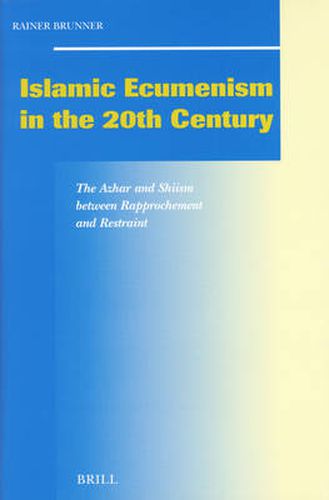Readings Newsletter
Become a Readings Member to make your shopping experience even easier.
Sign in or sign up for free!
You’re not far away from qualifying for FREE standard shipping within Australia
You’ve qualified for FREE standard shipping within Australia
The cart is loading…






The present volume describes the various phases of the inner-Islamic ecumenical dialogue in the 20th century between Sunnis and Shiites, the short-lived periods of success it achieved, but also the fierce mutual polemics it inevitably engendered. The examination focuses on the role of the Cairene Azhar University as the most important representative of Sunni Islam and its relations with Shiite scholars. Particular importance is attached to the interdependency of theological arguments and the political motivations of the interlocutors, and especially to the significance of Islamic ecumenism for Egyptian foreign policy in the 1950s. Although the main part of the study is confined to the time before 1979, in an epilogue the course of events is followed until most recent developments.
$9.00 standard shipping within Australia
FREE standard shipping within Australia for orders over $100.00
Express & International shipping calculated at checkout
The present volume describes the various phases of the inner-Islamic ecumenical dialogue in the 20th century between Sunnis and Shiites, the short-lived periods of success it achieved, but also the fierce mutual polemics it inevitably engendered. The examination focuses on the role of the Cairene Azhar University as the most important representative of Sunni Islam and its relations with Shiite scholars. Particular importance is attached to the interdependency of theological arguments and the political motivations of the interlocutors, and especially to the significance of Islamic ecumenism for Egyptian foreign policy in the 1950s. Although the main part of the study is confined to the time before 1979, in an epilogue the course of events is followed until most recent developments.